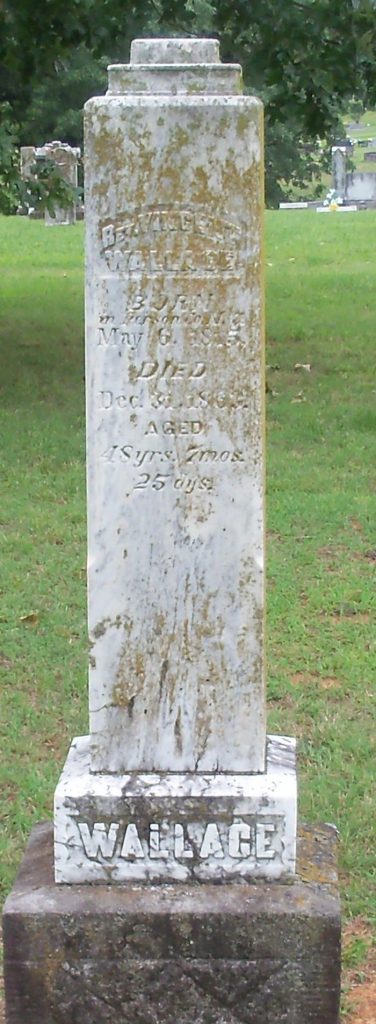By Dr. Curtis Varnell
The Civil War officially ended for the U.S. in April of 1865 but it was years before things could return to normal. Much of the South was devastated as a result of the fighting. Entire towns were burned to the ground, plantations and farms destroyed, and the economy in shambles. Even more devastating was the harm done within the soul of so many men and women that were involved in the bitterness resulting from waging battle against your fellow countrymen and neighbors.

Probably no area was more afflicted with these feelings than southern Missouri and N.W. Arkansas. The population in the region were nearly equally divided between support for the Union and support for the Confederacy. By 1863, most towns were occupied by the union but the rural areas were controlled by bushwhackers, many who were more loyal to their own personnel desires than to either military party. Lawlessness prevailed with atrocities committed throughout the region, often against neighbors or even relatives. Signing a paper ending the war did not end the bitterness and desire for revenge.
Entering town on highway 64, few towns seem as peaceful and calm as Clarksville, Ar. The downtown area contains the traditional courthouse on the square surrounded by a number of small businesses. Just north of the square stands the University of the Ozarks, one of the most beautiful campuses in the state. It’s hard to imagine the violence that swept the area during and after the war. Stories of that time abound but none describes the time better than the story of Sydney Wallace. Wallace was born near Clarksville, the fifth son of a local Methodist minister. On December 31, 1863, Wallace’s father was murdered in front of their house by a group of men wearing Union army coats. Thought to be local bushwhackers in disguise, the men were recognized by Missouri Blackard, a family slave who remained as a servant after the war. She refused to tell young Wallace the identity of the men until he became an adult. Traumatized by the event, some of which he observed, his hatred increased over the years and he vowed revenge when he became of age.

There are several variations of the story, which was picked up by newspapers as far away as the New York Times. Folklore says that, in 1871, he traveled to Kansas to kill one of the attackers and, upon his return, allegedly shot Joseph Dickey on a road near Clarksville. Dud Turner, who was a witness to the shooting was given a severe beating. Turner filed charges against Wallace and he was arrested but released on bail. Accompanied by his brother George, Wallace reportedly killed constable R.W. Ward and another man by the name of Davis. The two then accosted Turner who shot and killed George Wallace. Turner was arrested for shooting George but then released by Judge Elisha Mears who stated it was a clear case of self-defense. Violence begat violence. Up until this time, it was alleged that Wallace was only exacting revenge on those who had killed his father. Infuriated by the Judge’s action, he killed the judge and fled, only to be tracked down and arrested. Wallace somehow escaped, and was eventually recaptured. Back in the cell, Wallace overpowered his guards, seized their weapons and shot guard Thomas Paine, a man with whom he had personal enmity and whom his supporters claimed was a part of the group involved in his father’s death. During his escape, he and two of his brothers took shelter in a building and refused to surrender until authorities threatened to blow up the building with the entire group inside.
Even though a local folk hero; nearly 1,000 people signed a petition for his release, he was convicted to hang for killing the judge. He was hanged in Clarksville on March 13, 1874 in front of hundred of spectators. Defiantly, on the gallows he stated. “I die in defense of myself, my friends, and I regret not having a dozen deaths to die.”
Common criminal or folk hero defending his family, we will never know for sure. What we can see is the results of hatred, bitterness, and revenge.






